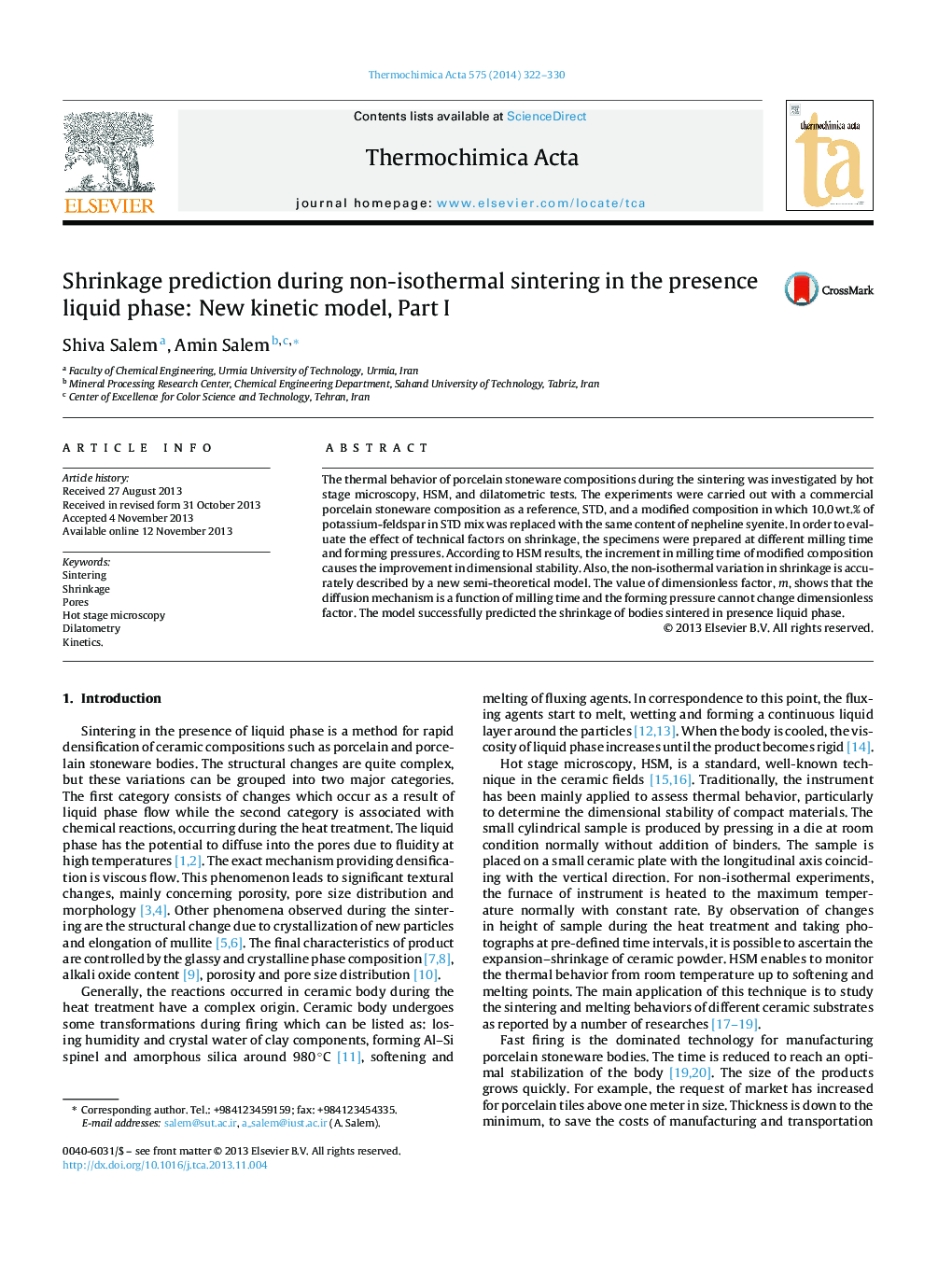| Article ID | Journal | Published Year | Pages | File Type |
|---|---|---|---|---|
| 673537 | Thermochimica Acta | 2014 | 9 Pages |
•The thermal shrinkage of porcelain stoneware bodies was predicted by a semi-theoretical model.•The dimensional stability range of compositions was determined by hot stage microscopy.•The effects of technical factors on thermal shrinkage were evaluated by dilatometry.•The order of sintering, m, depends on milling time.•The forming pressure cannot affect the sintering rate.
The thermal behavior of porcelain stoneware compositions during the sintering was investigated by hot stage microscopy, HSM, and dilatometric tests. The experiments were carried out with a commercial porcelain stoneware composition as a reference, STD, and a modified composition in which 10.0 wt.% of potassium-feldspar in STD mix was replaced with the same content of nepheline syenite. In order to evaluate the effect of technical factors on shrinkage, the specimens were prepared at different milling time and forming pressures. According to HSM results, the increment in milling time of modified composition causes the improvement in dimensional stability. Also, the non-isothermal variation in shrinkage is accurately described by a new semi-theoretical model. The value of dimensionless factor, m, shows that the diffusion mechanism is a function of milling time and the forming pressure cannot change dimensionless factor. The model successfully predicted the shrinkage of bodies sintered in presence liquid phase.
Graphical abstractFigure optionsDownload full-size imageDownload as PowerPoint slide
